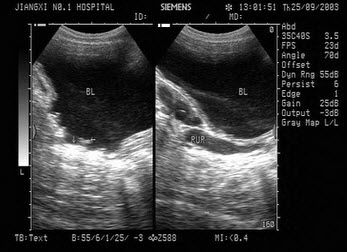The objective of the migrant health program of the United States government is to provide grants for the development and enhancement of high quality health care services in rural areas for migrant and seasonal farm workers and their families so as to raise the status of health care for these people to that of the general population. This amelioration can be achieved by providing comprehensive heahh services, which are made aeeessible to people who move frequently, and by improving the physical environment so as to assure healthful living and working conditions wherever workers are located.
Grants are available to state and local health departmenls and other nonprofit agencies, organizations, and institutions. These funds can he used for the following purposes: to establish and operate general family health service facilities and clinics; to provide heahh education, training, and sanitation services to upgrade health conditions; and to initiate preventive health services. Preventive care in the form of immunization programs is the oldest aspect of the program.
The program further attempts to promote flexibility in locating health services where they will be accessible at times and places convenient to migrant workers and their families. The family heahh care clinic, with additional outreach services by field nurses and aides who visit migrant families in camps and at their homes for counseling and follow-up, constitutes the newest and most significant innovation in the initiate preventive health services. However, despite the introduction of innovative approaches, heahh care services for migrant workers are still limited and highly inadequate.
Although the migrant health program has no fixed matctling ratio, a grantee is required to pay part of the cost, which varies from project to project. Many rural counties do not have enough money to cover matching payments, nor do many states consider migran! workers’ health a budget priority. The costsharing requirement limits the potential effectiveness of the program, and literally hundreds of communities with a yearly influx of nngrant workers still lack organized local programs to provide the needed services.A major problem for local or state health agencies is their inability to develop case histories and ongoing communication with migrant workers. Lack of knowledge regarding migrant workers’ health needs is another reason for the dearth of services. There has been little communication about health problems among communities, health professionals, and migrant workers themselves. Ignorance of a group’s special needs often leads to exclusion and rejection of that group and its prohlems. This is often the case with migrant workers, as evidenced by the enforcement of state residency requirement. It is, of course, impossible for most migrant workers to meet these requirements and become eligible fro" existing state and local heahh and welfare aid.
What does the word "amelioration" (Para. 1) most probably mean()
A. Complexation
B. Population
C. Improvement
D. Comprehension
参考答案:C
解析:
本题考查生词。Amelioration这个单词在大纲词汇中并没有出现,在过去历年考查的超纲单词中也没有出现,在考场上属于有一点难度的题目。遇到这种情况,同学们不能靠同忆或猜测,而应多关注上下文中出现的提示。第一节中其实只有两句话,第一句说“健康计划的目的是发展和加强农村地区的高品质医疗服务”及其目的;第二句话说“实现amelieration的两个途径”。amelieration此处对应了第一句中的“发展和加强”的含义。故正确选项为C。

